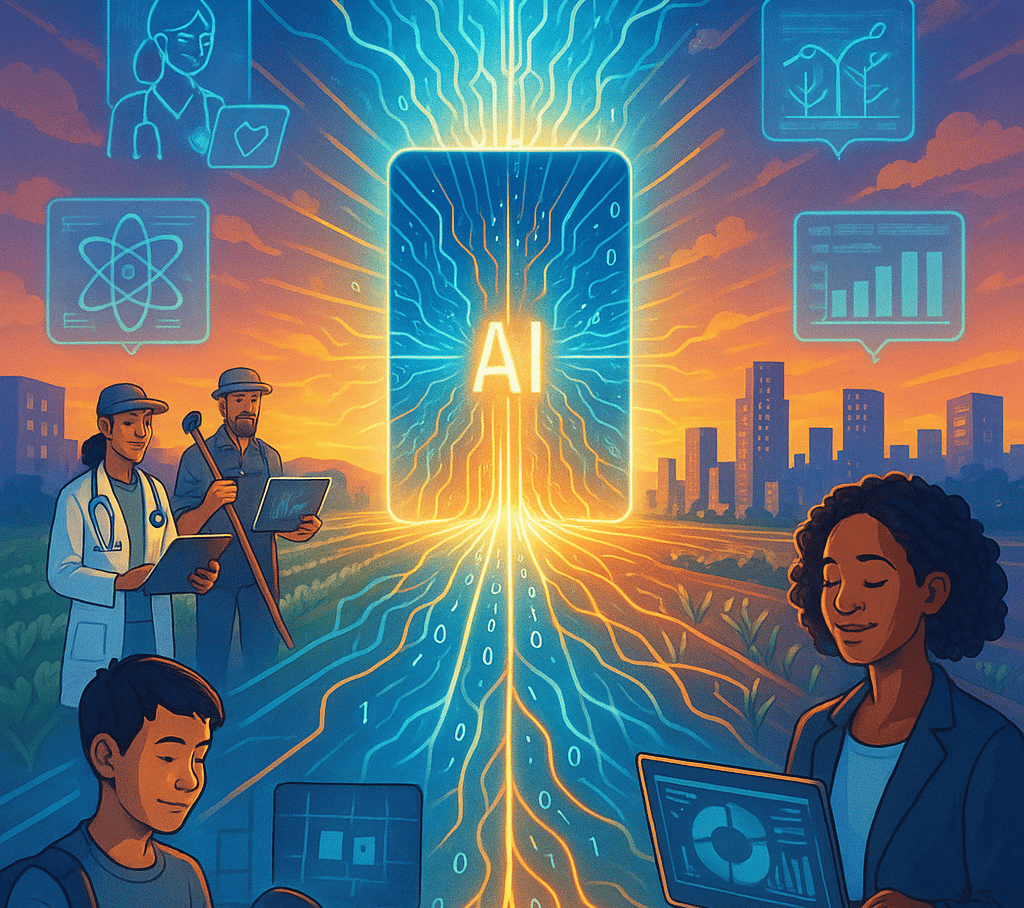ML, Deep Learning, Data Engineering Fuel Tech Careers Growth
AI, Machine Learning, Deep Learning, and Data Engineering are rapidly transforming industries with a $282 billion market by 2030. Democratizing these skills is crucial for widespread deployment, enabling professionals to sustain and advance tech ecosystems globally.
EDUCATIONTECH INFRASTRUCTURELLMARTIFICIAL INTELLIGENCETECHNOLOGY
Eric Sanders
9/18/20254 min read


Why AI and Data Skills Should Belong to Everyone
The future of technology is no longer a distant dream—it’s shaping our world today with relentless velocity. Artificial Intelligence (AI), Machine Learning (ML), Deep Learning, and Data Engineering have transcended buzzwords to become the backbone of modern innovation. By 2030, this deep tech universe is projected to be a staggering $282 billion industry. Yet amid this explosion, a critical question arises: who gets to play in this field? If these transformative technologies remain locked behind ivory towers and elite institutions, their societal benefits will be limited. True progress demands that these skills be democratized, giving individuals everywhere the chance not only to participate but to lead in the next wave of technological evolution.
Deep Tech as a Career Catalyst
I’ve watched the tech landscape unfold in bewildering fashion over the past decade. The shift from traditional IT to AI-driven solutions isn’t just incremental; it’s revolutionary. Companies no longer rely solely on standardized software—they are building intelligent systems capable of learning, adapting, and even predicting outcomes in ways humans never imagined. At the heart of this revolution lies data—and the engineering muscle required to capture, clean, and transform raw information into actionable insights.
Where once coding job listings focused primarily on software engineering or database management, today the demand skyrockets for data scientists, machine learning engineers, and AI specialists. It’s no exaggeration to say that deep tech skills have become invaluable currency. They unlock doors to innovative projects—autonomous vehicles, personalized medicine, fraud detection, and beyond.
But here’s the crux: gaining these skills is still a tall order. The learning curve for AI and deep learning is steep, knowledge resources are fragmented, and many potential aspirants lack access to quality education. The industry’s boom risks creating a stratified ecosystem where only a select few reap the rewards, amplifying existing socioeconomic divides.
Why Democratization is Essential
The promise of AI is to augment human capabilities universally, not just enrich a privileged few. As experts argue, democratizing AI, ML, and data engineering is essential “for widespread deployment, enabling professionals to sustain and advance tech ecosystems globally.” A technology that empowers diverse voices and backgrounds is also a technology that thrives.
Imagine the possibilities:
- In healthcare: Local clinics in remote areas using AI diagnostics tailored to regional health patterns.
- In agriculture: Smallholder farmers harnessing predictive analytics to optimize crop yields.
- In education: Personalized learning platforms adapting to different cultural contexts and learning needs.
- In governance: Transparent data-driven policymaking that responds to real-time citizen feedback.
This vision depends on training a broad base of professionals capable of building, maintaining, and innovating next-gen systems. It also means shifting away from proprietary, closed-source solutions toward open frameworks and accessible tools.
Making Deep Tech Learning Pragmatic and Inclusive
How do we bring deep tech skills to the many rather than the few? The first step involves rethinking education and skill-building.
- Modular Learning Paths: Interactive and outcome-based curricula that allow learners to master AI and data engineering in bite-sized, practical modules. This lowers intimidation and encourages steady progress.
- Community-driven Platforms: Peer networks and mentorship accelerate learning by sharing real-world problems, solutions, and feedback.
- Leveraging Open Source: Open tools democratize experimentation, preventing gatekeeping by expensive software or hardware requirements.
- Industry Partnerships: Meaningful collaborations between academia, startups, and established enterprises expose learners to current challenges and evolving market needs.
In India, for example, these approaches have already sparked promising results. Talent from tier-2 and tier-3 cities is breaking into the deep tech arena, contributing to innovation hubs while inspiring others to follow.
To quote from the insights shared by experts in the field: “Bringing Machine Learning and Deep Learning to common people is not a futuristic utopia but an ongoing necessity to sustain the momentum of technological advancement." This connects back to the larger narrative—when the workforce reflects the diversity of the population, the products and systems developed serve society more equitably.
Beyond Code and Algorithms
Tech careers are often perceived as technical and cerebral, but they’re deeply human ventures. Each algorithm created and data model built carries the fingerprints of individual creativity, resilience, and vision. Democratization isn’t merely about scaling skill acquisition; it’s about redistributing opportunities to find meaning and agency in a rapidly changing world.
Personal stories multiply when access is broadened: a single mother mastering data science online to support her family, a rural youth developing an AI model to solve water scarcity in his village, or a teacher creating adaptive learning content for special needs education.
These narratives remind us that technology’s power lies not in complexity but in its capacity to uplift lives, awaken passions, and connect human beings with tools to imagine better futures.
Who Will Lead the Next Wave of Deep Tech Innovation?
The stakes couldn’t be higher. If the coming decades belong to AI and data, the next generation of builders and thinkers must emerge from varied walks of life. This isn’t just a matter of technical proficiency—it’s a question of fairness, creativity, and destiny.
Who will ensure that AI doesn’t just mirror the biases and imbalances of the past? What voices will shape AI’s ethical contours? Where will the fresh ideas that disrupt current paradigms come from, if not from those hitherto excluded?
The spotlight is on educators, policymakers, businesses, and individuals to foster an ecosystem where anyone passionate and curious can become a deep tech professional. This calls for bold choices: investing in scalable education, crafting public-private partnerships, and nurturing inclusive innovation spaces.
Because the future isn’t some far-off event hidden in lines of code—it’s right here in the hands of those brave enough to learn and build. And that is a future worth waking up for.
---
Are we ready to move past exclusivity and open the gates wide for everyone to contribute to—and benefit from—the deep tech revolution? How can you be part of this transformational journey, ensuring that AI and data skills propel not just industries but entire communities forward?
Efficiency
Transform your workflows and reclaim your time.
Contact Us
Need A Custom Solutions? Lets connect!
eric.sanders@thedigiadvantagepro.com
772-228-1085
© 2025. All rights reserved.
